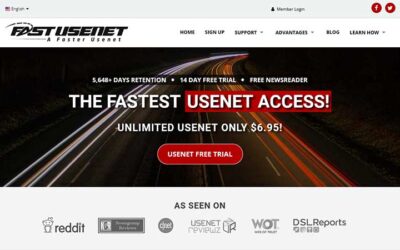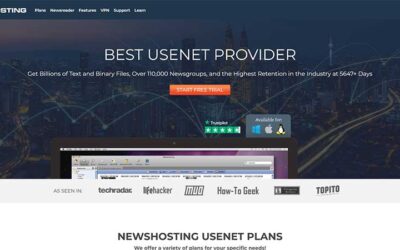Contents
Usenet: A Look at Its Legal Standing
Usenet shines as one of the early Internet’s most reliable cornerstones—a fully legal service that’s been chugging along for over 40 years. Born in 1980, it started as a decentralized network where people could toss messages into newsgroups and, later on, share files too. Back when the Internet was just stretching its legs, Usenet was a go-to for swapping ideas, linking up academics, researchers, and hobbyists across the globe.
How Usenet Took Off
In its prime, Usenet wasn’t some fringe Internet service used by a small fraction of online goers—universities, colleges, and ISPs handed out access like candy. It was a legit tool for talking across borders and institutions, buzzing with thousands of newsgroups where online communities sprouted. That kind of widespread use cemented its place as a lawful, vital piece of the digital world.
The Shift and Slow Fade
But the Internet didn’t stand still. Sleeker options—web forums, social media, blogs—rolled in with flashier interfaces and tighter integration, nudging Usenet aside. Casual users drifted away, and keeping Usenet running turned into a real headache for providers. The data pouring through ballooned to hundreds of terabytes daily, chewing up bandwidth and storage. Plenty of ISPs and schools either dropped it entirely or trimmed it back to text-only groups to lighten the load.
Usenet’s Legal Core Holds Strong
Even so, Usenet’s never lost its legal footing. It’s still kicking, with a loyal crowd that swears by it. Its drop from the spotlight doesn’t change the fact that it’s built to share messages and files in a way that’s always stayed relevant in today’s digital World—think of it like email or any other basic Internet service.
DMCA and Keeping It Legit
Usenet providers don’t get a free pass, though. They’ve got to play by rules like the Digital Millennium Copyright Act (DMCA). That means cracking down fast on copyright breaches—yanking infringing material when it’s posted. It’s a system that keeps Usenet on the right side of the law, protecting both the services and the folks using them, while respecting the people who create the content in the first place.
Commercial Boost for Easy Access
Getting into Usenet isn’t the hassle it once was, thanks to commercial outfits like Fast Usenet, Usenet Server, and Newshosting. They’ve smoothed out the rough edges, offering a slicker way in for anyone curious enough to dive into the network. Signing up with one of them can unlock a top-tier Usenet experience.
Usenet Now: Still Worth It?
Today, Usenet’s got a niche but dedicated following. People stick around for the privacy, the steady reliability, and the blissful lack of ads. It’s like a living time capsule of Internet culture, with newsgroups still humming along. That it’s lasted this long—and stayed legal—shows it’s more than just a relic; it’s a foundational piece of how online communities came to be.
Why Usenet Still Rocks in 2025
If you’re itching to jump into Usenet, your best bet is to go with a solid provider like Fast Usenet, Newshosting, UsenetServer, or Easynews—they are some of the best reviewed providers of 2025. Oh, and if you’re hunting for a bargain, we’ve got a rundown on the top Usenet deals for 2025 worth checking out.
Wrapping Up: Usenet’s Legacy
So yeah, Usenet’s not only legal—it’s a slice of Internet history that still matters. It’s not basking in the limelight anymore, but for anyone looking beyond the usual suspects of digital chatter, it’s a gem. Usenet captures that raw, open vibe of the early web, grounded in ideas that haven’t faded with time.




